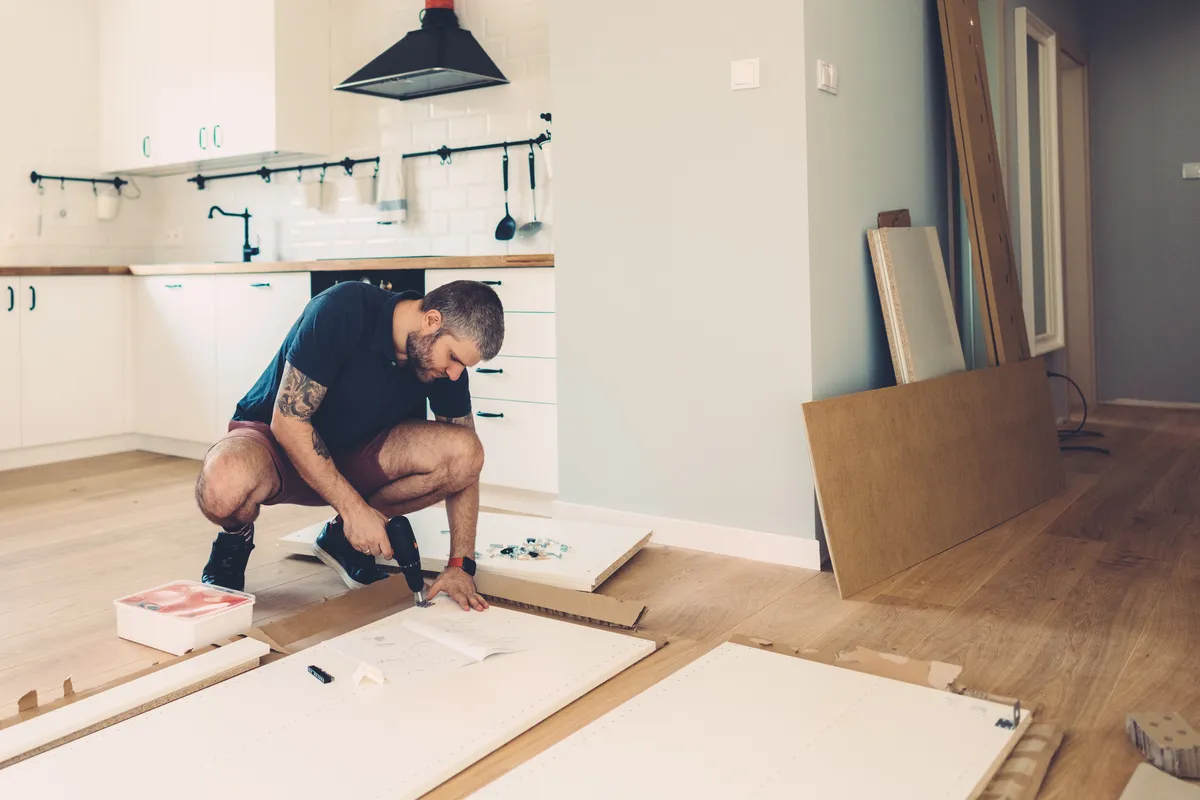Your kitchen is by far one of the most important living spaces within your home, so any improvements you plan on making to this space should be carefully considered to ensure you get it just right.
These are our top 10 things to consider when planning your kitchen:
1
Think about the end goal
Of course you want to design a space that looks great, but style and functionality need to work hand-in-hand too. So the first thing to consider is the end goal of your renovation project, what's your main objective for the new kitchen space?
Ask yourself a few key questions: does it need to integrate with other areas of the home? What lifestyle needs should the space meet? How will you be using the space on a daily basis? What do you wish your kitchen space would do for you that it doesn't do now? Use these answers to come up with a wish-list of everything you want.
2
Visualise it
Before you start renovating you need to explore the style of kitchen you are most drawn to. Is it a modern, sleek look, or do you prefer a more classical, natural-wood design that screams craftsmanship?
Take a look through interior books, magazines and our Real Homes section to gather inspiration. Collecting photos of the styles you like can really help when it comes to briefing a designer, a picture can often clearly communicate what you may struggle to capture in words alone.
This is also a great time to start shopping for a kitchen designer who knows their stuff - they should be able to help and guide you through the inspiration-gathering process, offering ideas for colours, finishes, even flooring, and kitchen tile ideas that will complement your preferred aesthetic. More importantly they will be able to help you to refine the inspiration and hone in on what will work best for you.
3
Designer style
Whether your kitchen renovation involves a minor face-lift or a complete overhaul, working with an experienced kitchen designer can be well worth the investment.

A solid designer will have access to all the necessary planning tools and technology to help you visualise and plan out the space to best effect. They should be passionate about keeping up with design trends, surface materials, technical know-how and building regulations. And, because they are used to dealing with a multitude of tradespeople from architects to builders to electricians, their expertise can really save you a lot of time and money in the long run.
We suggest asking for recommendations from friends and getting online to search the top kitchen designers in your area as their websites often give a really great insight into the types of developments they have worked on.
4
Keep an open mind
Your kitchen designer may challenge your preconceptions about the renovation project, and that's when you know they are doing their job properly. They have years of experience and should be able to confidently introduce you to options you hadn't previously considered.
They are also looking at things from a less emotional perspective, so they will prevent you sacrificing functionality for something that just looks great. Keeping an open mind will allow the design process to evolve naturally and ultimately provide you with a space that works perfectly for your lifestyle needs.
5
Have a clear budget
Knowing at the outset what you want to, and are able to, spend will help you to avoid being disappointed or shocked later down the line if your vision and dreams far exceed the reality.
If your kitchen designer has this insight from the very beginning they can work within your budget to ensure your scheme has all the wish-list of requirements while stretching your available budget as far as possible.
6
Utilise your designer
The next phase includes planning the space in detail, drawing up preliminary floor plans and elevations, using the latest 3D software to walk you through the space, realistically demonstrating every single detail.
Your designer should work with you to adapt and refine the space until the prefect solution is arrived at, this can include a number of draft plans, often though if the earlier stages are followed correctly there should not be too many reviews.
Once the layout is agreed upon it's time to start thinking about fixtures and finishes, so this is where key decisions will be made regarding colours and materials. Your designer should be able to talk you through the finer details and innovative solutions for you to consider such as warming drawers, instant hot water taps and self-cleaning ovens.
7
Agree a timescale
At this stage your designer will draw up a working schedule for you all to agree on that covers every stage from build to installation, right through to decoration and flooring.
In order to create a timing plan that works they should be mindful of the order in which each step of the renovation process should be carried out to ensure minimum disruption and maximum flow to the process. A good designer will orchestrate the project according to the agreed schedule, liaising with the key trades on your behalf, and managing circumstances that have potential to delay the project.
8
Be patient

It's important to remember that it can take four to six weeks for a complete kitchen renovation and you will need to be prepared for significant downtime without a kitchen. Plan ahead and think about how to utilise the rest of your home whilst the renovations are taking place. Can you move your existing fridge to another area for the time being? If it's warm outside can you use your BBQ for cooking or make use of portable appliances such as toasters, hot plates and electric griddles?
Your contractors want to deliver you the perfect finish so discuss all the logistical arrangements with them ahead of time so expectations are met. And no matter how anxious you are to see the end result it's important to allow them sufficient time to finish the project.
9
Appreciate there will always be a 'snagging list'
On large renovation projects little details can be missed so once the renovations are completed your designer should work with you to identify the final list of items that may need fixing, amending or adapting. They will liaise with the appropriate contractors to ensure completion and keep in touch with you long after the install offering assistance and guidance to familiarise you with your new appliances and furniture.
10
Remember the bigger picture
A renovation of this nature is a significant investment not just into bricks and mortar but also to your own lifestyle. As well as adding value to your home it should offer tangible benefits to your lifestyle too, meeting that vision you anticipated at stage one.
So keep in mind that the inconvenience of the renovation period is a short period of time in the grand scheme of home ownership. The result will be years of enjoyment of a beautifully designed space that works perfectly for you and your family.
